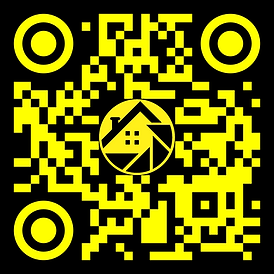Door Entry Access Control Panels: The Future of Secure Access with Smart Readers
Introduction
In an era where security is paramount, especially in sensitive environments such as corporate headquarters, government facilities, and research institutions, the need for advanced access control systems has never been more critical. Traditional methods of access control, like keycards and PIN codes, are increasingly being supplemented or replaced by more sophisticated and secure technologies. Among these, smart readers that use biometric data such as retina scans and fingerprints are gaining prominence. This paper explores the advantages, challenges, and future prospects of Door Entry Access Control Panels equipped with smart readers for retina, fingerprint, and other biometric security controls.
The Evolution of Access Control Systems
Access control systems have evolved significantly over the years, moving from simple mechanical locks to electronic systems that offer far greater control and security. Initially, these systems relied on magnetic stripe cards and later, more secure proximity cards. However, as threats have evolved, so too have the technologies used to counter them. Today, the focus is on biometric systems that offer a higher level of security by leveraging unique human traits that are difficult to replicate or steal.
Biometric Smart Readers: Retina and Fingerprint Scanning
Retina Scanning
Retina scanning is one of the most secure biometric authentication methods available. It works by scanning the unique pattern of blood vessels in the retina at the back of the eye. Because these patterns are highly complex and unique to each individual, retina scans provide a high level of security. Research has shown that retina scans have an extremely low false acceptance rate, making them one of the most reliable forms of biometric identification. However, retina scanning systems require users to stand very still and can be more expensive than other biometric systems, which can limit their practicality in high-traffic areas.

Fingerprint Scanning
Fingerprint scanning is another widely used biometric authentication method. It offers a good balance between security, cost, and user convenience. Fingerprints are unique to each individual, and modern fingerprint scanners are highly accurate, with low false acceptance and rejection rates. The technology has advanced to the point where it can even detect “liveness” to prevent the use of fake fingerprints. Fingerprint scanners are also more user-friendly and less intrusive than retina scanners, making them suitable for a wide range of applications, from corporate offices to residential buildings.

Advantages of Biometric Door Entry Access Control Panels
Enhanced Security: Biometric systems significantly reduce the risk of unauthorized access because they rely on unique biological traits that are difficult to replicate or steal. Unlike keycards or PIN codes, which can be lost, stolen, or shared, biometric data is inherently tied to the individual.
Convenience: Users do not need to remember PIN codes or carry keycards. Access is as simple as scanning a fingerprint or looking into a retina scanner.
Audit Trails: Biometric systems can maintain detailed logs of who accessed a facility and when, providing valuable data for security audits and investigations.
Integration with Other Systems: Modern access control panels can be integrated with other security systems, such as CCTV, alarm systems, and time-and-attendance systems, to provide a comprehensive security solution.

Challenges and Considerations
While biometric access control systems offer numerous advantages, they also come with certain challenges:
Privacy Concerns: The collection and storage of biometric data raise significant privacy issues. Organizations must ensure that biometric data is stored securely and used in compliance with relevant data protection regulations.
Cost: Biometric systems, particularly those involving retina scans, can be expensive to implement and maintain. The cost includes not only the hardware but also the software and infrastructure required to manage the system.
User Acceptance: Some users may be uncomfortable with biometric systems, particularly those that involve retina scans, due to concerns about privacy or the perceived intrusiveness of the technology.
Environmental Factors: Biometric readers can be affected by environmental factors. For example, fingerprint scanners may not work well for individuals with worn or damaged fingerprints, and retina scanners may struggle with users who wear glasses or contact lenses.

Future Trends
The future of door entry access control panels with biometric smart readers looks promising, with ongoing advancements in technology and increasing adoption across various industries. Some emerging trends include:
Multi-Modal Biometric Systems: These systems combine multiple biometric identifiers, such as fingerprint and retina scans, to enhance security and reliability. Multi-modal systems are harder to spoof and can provide fallback options if one method fails.
Artificial Intelligence and Machine Learning: AI and machine learning are being integrated into biometric systems to improve accuracy, detect anomalies, and enhance user experience. For example, AI can be used to adapt biometric recognition algorithms to account for changes in users’ physical characteristics over time.
Mobile Integration: The integration of biometric systems with mobile devices is on the rise. Users can authenticate their identity using their smartphone’s biometric features (like fingerprint or facial recognition) to gain access to secure areas, providing both convenience and security.
Cloud-Based Solutions: Cloud-based access control systems allow for easier management and scaling of biometric systems. These solutions enable real-time monitoring, remote management, and integration with other cloud services, making them attractive for organizations with multiple locations.
Conclusion
Door Entry Access Control Panels equipped with biometric smart readers, such as retina and fingerprint scanners, represent a significant advancement in security technology. While there are challenges to overcome, including cost, privacy concerns, and user acceptance, the benefits in terms of enhanced security and convenience are substantial. As technology continues to evolve, these systems will become increasingly sophisticated, reliable, and accessible, paving the way for a future where secure access is not only essential but seamlessly integrated into everyday life. Organizations looking to enhance their security posture should consider investing in these advanced biometric systems as part of a comprehensive security strategy.

Secure Your Premises with FixaCal: Advanced Door Entry Access Control Panels
In today’s world, securing sensitive environments is more crucial than ever. Traditional access methods are no longer sufficient to meet the growing security demands of corporate headquarters, government facilities, and research institutions. That’s where FixaCal comes in. We specialize in designing, installing, and programming advanced Door Entry Access Control Panels equipped with cutting-edge smart readers for retina, fingerprint, and other biometric security controls.
Why Choose FixaCal?
Expertise in Biometric Access Control: FixaCal is at the forefront of integrating sophisticated biometric systems into secure environments. Our smart readers for retina and fingerprint scanning offer unparalleled security by leveraging unique human traits that are nearly impossible to replicate or steal.
Comprehensive Services: We handle everything from the initial design to installation and programming. Our solutions are tailored to meet the specific needs of your facility, ensuring seamless integration with existing security systems.
Unmatched Security and Convenience: With over 15 years of experience, FixaCal guarantees that your premises are protected by the most advanced access control technologies available. Our systems not only enhance security but also offer unmatched convenience, eliminating the need for keycards or PIN codes.
Multi-Modal Biometric Solutions: We offer multi-modal systems that combine various biometric methods, such as retina and fingerprint scans, for enhanced security and reliability. This approach ensures that your access control system remains secure and user-friendly.
Take the Next Step in Security with FixaCal
By choosing FixaCal, you’re not just investing in an access control system; you’re investing in peace of mind. Our licensed, certified, bonded, and insured team ensures that every project is completed to the highest standards, providing you with the security and reliability you need.
Contact FixaCal today at (949) 234-7744 to learn more about how we can design, install, and program the perfect Door Entry Access Control Panel for your facility. Secure your premises with the leaders in advanced security solutions.
FixaCal – Your Trusted Partner in Advanced Security Solutions











